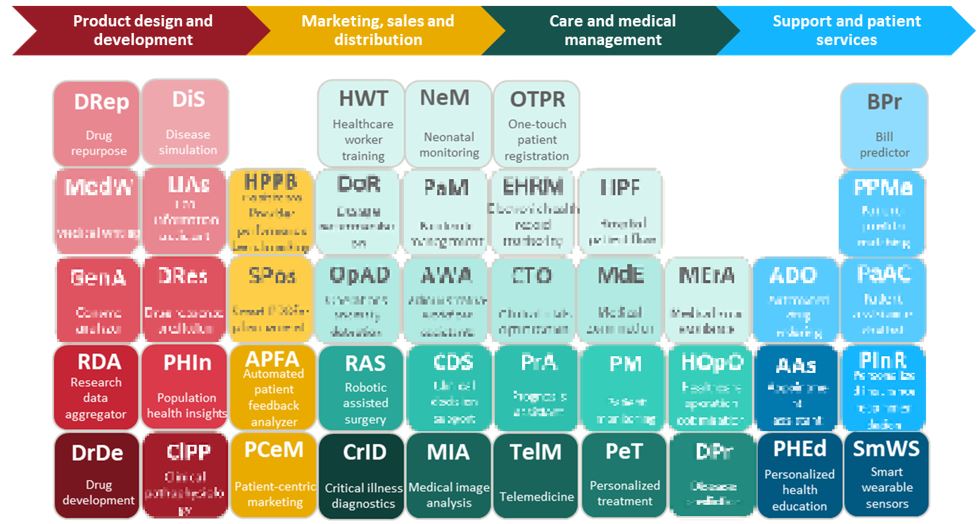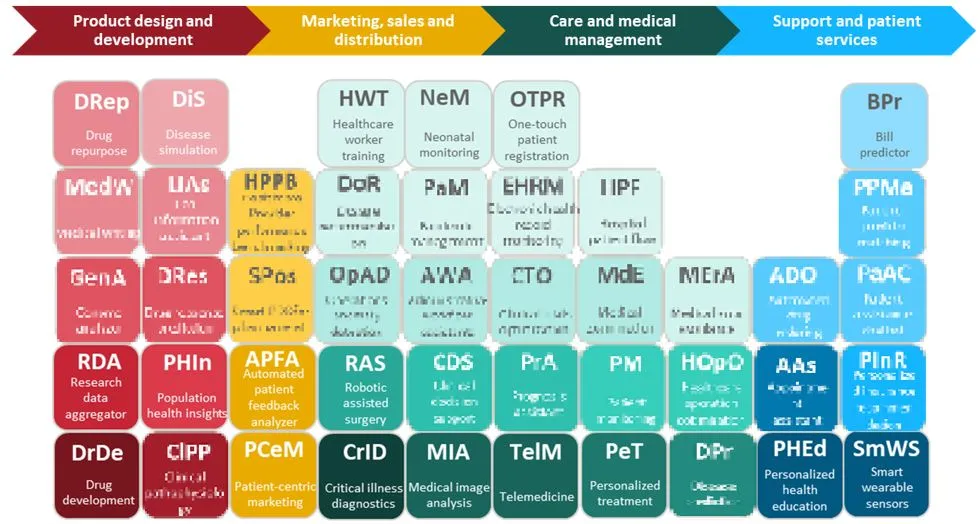#HealthTech: AI use case landscape in healthcare – Guide to start your AI journey
Blog: NASSCOM Official Blog
Patient care and experience, operations and R&D are top priorities for AI implementation in healthcare
AI is affecting almost every aspect of our lives and healthcare is no different. Globally, the integration of AI into healthcare is increasingly becoming crucial towards enabling anytime, anywhere care. My previous article on AI-led transformation for accessible, efficient and affordable healthcare services highlights how AI transformation levers can play a pivotal role in providing quality healthcare services with increased accessibility and at reduced costs. However, delivering quality services in a diverse market like India at scale and at affordable price is immensely complex, especially with the large underserved population, rising disease burden and variation in quality of care across different public and private players.
Therefore, it is critical for healthcare organizations to be aware of the AI opportunities across the healthcare value chain to be able to scale the benefits, having a far-reaching impact. Through the below periodic table we highlight the spectrum of AI use cases focused on addressing specific healthcare value chain challenges that will help organizations understand the best fit use case and come up with a sustainable action plan for AI within their environment.

Download our report here for accessing the full periodic table and instructions to interpret and use it
Here are some illustrative use cases that are amongst the most popular AI use cases implemented by healthcare organizations globally across each of the value chain segments
Drug Development: AI is emerging as a disruptive technology for faster discovery and development of innovative therapies. Healthcare organizations including pharma and life sciences players along with research centres at hospitals are now heavily using AI to accelerate the drug discovery process that allows researchers to design novel treatments for diseases including cancer, tumours, infections, etc. As an example BioXcel Therapeutics uses AI identifies relationships between diseases, targets and drugs for future drug development. Astrazeneca uses AI-enabled analysis of histology samples to identify biomarkers to understand which patients are more responsive to drug candidates.
Patient centric marketing: AI is helping hospitals, diagnostics, clinics and home health providers to help drive patient-centric marketing and meaningful engagement. Many players are utilising advanced ML algorithms to improve diagnostics, predict clinical outcomes and drive personalized marketing for healthcare providers with the data obtained, allowing them to deliver personalised health recommendations. Multiplier Solutions is a great example in this segment and their AI-powered healthcare marketing helps pharma clients globally.
Critical Illness Diagnostics: The use of an ensemble of clinical informatics, recommender systems, and deep learning to analyse structured and unstructured patient data sets to find hidden patterns, trends, and similarities to derive insights regarding chronic conditions and critical diseases as in area that is gaining immense use from an AI perspective in healthcare. For example, Grail uses AI for early detection of cancer by pan-cancer screening test and by measuring nucleic acids in blood using high-intensity sequencing instead of exposing the patient to hazardous radiations.
Personalized health education: AI in healthcare is increasingly shifting from reactive to proactive. Organizations are working on the deploying AI-powered solutions for preventive diagnostics and medicine. AI is increasingly being used to mine individual insights based on their genome to help them make proactive choices about their health. As an example, Mapmygenome offers personalized health solutions based on genetic tests that help people to get to know about themselves. Additionally, organizations are also using AI to predict individual’s risks for lifestyle diseases and provide informative health insights at an individual based on the risk score assigned.
Healthcare is increasingly becoming the greatest beneficiaries of AI of late. The sector’s data-heavy nature makes it an ideal candidate for the application of AI across multiple disciplines, from diagnosis and pathology to drug discovery and patient support. COVID-19 has further necessitated the use of tech-enabled solutions in the sector.
NASSCOM Research, LHIF along with EY released a report titled “Unravelling AI for Healthcare in India” focusing on AI opportunities in India’s healthcare sector. To access the full periodic table and detailed use cases download the full report. Feel free to reach out to me for any queries/suggestions. Watch out for our next article on how to prioritise the right use cases with our unique use case prioritisation matrix.
The post #HealthTech: AI use case landscape in healthcare – Guide to start your AI journey appeared first on NASSCOM Community |The Official Community of Indian IT Industry.
